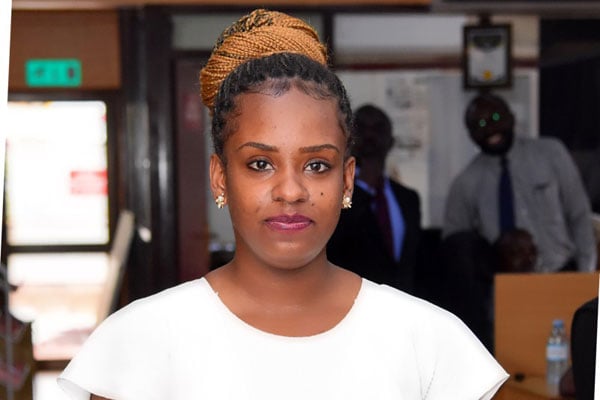Prime
Leaders call for increased mental health awareness

Mukono Municipality MP Betty Nambooze (left) makes a point during the mental health conference in Kampala yesterday. PHOTO / FRANK BAGUMA.
What you need to know:
- The distress call made him imagine the worst that could have happened at home despite having just dropped his three children at school.
On March 28, Mr Joseph Ajal, a human resource professional, got a distress call from one of his caretakers at home, asking him to return home immediately.
The distress call made him imagine the worst that could have happened at home despite having just dropped his three children at school.
Shortly after, he received another call from his children’s school, and the head of academics asked: “Joe have you heard?”
Confused, he asked to first get back to his caretaker at home to find out exactly what was happening.
“I called my caretaker back and told him that since he couldn’t talk, let him hand over the phone to a neighbour, which he did. The neighbour said ‘I’m sorry, neighbour, but I have to break it to you. We are standing outside your compound but I can see you wife has committed suicide by hanging’,” he said.
His wife of 16 years had been diagnosed with schizophrenia and despite treatment, it proceeded to be acute. She often broke into violent episodes, which became harder to control as time went by, but she was not the only one suffering, it affected the people around her.
“As a husband of a woman who was mentally ill all through our marriage, I can tell you that the caregiver faces just as much pain, if not more, than the sufferer. Because when she would not sleep, I would not sleep. When she was smashing plates against the walls and throwing knives around the house, I was the one suffering wounds,” Mr Ajal narrated.
He added: “As the principal caregivers, the family members are in pain because we know what they [mental illness patients] are going through, but they [victims] don’t because they are held captive by their mental illness”
“I want to give more credibility to the concern of most Ugandans that mental health needs more funding and support and, especially for society, to stop the stigma that surrounds mental illnesses” Mr Ajal said yesterday during the Uganda National Mental Health Conference 2022.
Mr Ajal listed some of the warning signs to look out for that can help one recognise that their loved one might need mental health help.
“I observed while living with her that her anger management was none existent, she didn’t have any barriers when she got angry,” he said.
He added: “Insomnia is also another sign, as well as obsessive compulsive disorder.”
Organised by the Uganda Counsellors Association under the theme “make mental health for all a priority”, the conference aimed at creating awareness about mental health illness, reduce stigma and increase allocation in the National Budget. The conference runs up to tomorrow.
Dr Hasfa Lukwata, the assistant commissioner for mental health, alcohol and substance abuse at the Health ministry, said only 0.7 percent of the health care budget goes to mental health care.
She also said depression is a big mental health challenge, with 19.5 to 20 percent of the population suffering from some sort of depression.”
Mukono Municipality MP Betty Nambooze called for sensitisation and awareness about mental health.
“We need various lobbyists to get in touch with these politicians to make them aware of this problem. As politicians, we are not aware of the magnitude of this problem. Maybe we need to bring MPs to hear stories such as that of Mr Ajal to understand this so that when preparing the National Budget, mental health can be prioritised,” she said.
The executive director of Butabika National Referral Mental Hospital, Dr Juliet Nakku, referred to mental health as a “stepchild” of health care in Uganda because of the way it is neglected.
She said Uganda has about 53 psychiatrists serving a population of about 44 million people, with an estimate of 14 million believed to be mentally unwell.





